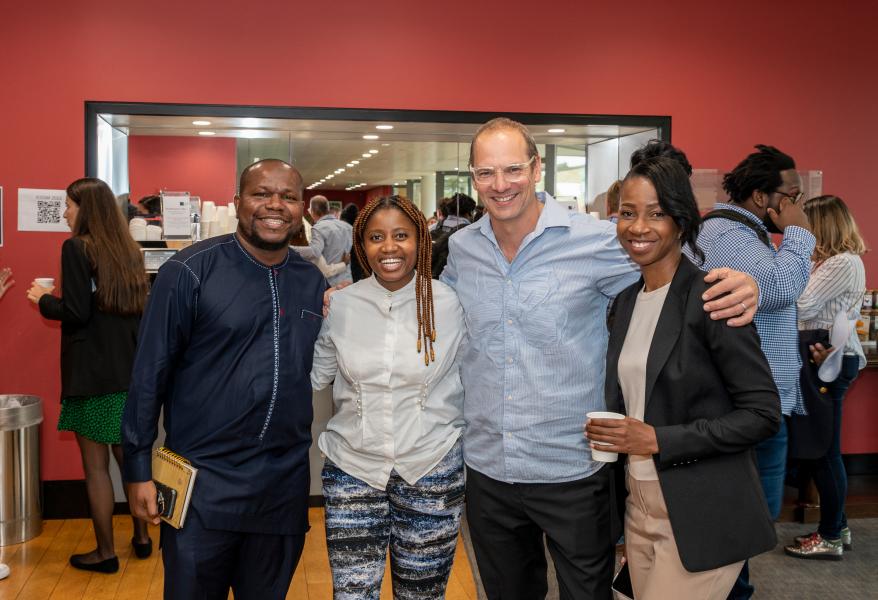The future of Africa’s technology and entrepreneurship is taking centre stage at the ongoing Africa Venture Finance Programme (AVFP), where more than 40 of the continent’s top venture capital fund managers are being trained to improve startup funding. The programme, which started on September 1 at Oxford University’s Saïd Business School in the United Kingdom, is expected to strengthen Africa’s venture capital ecosystem and create new opportunities for young innovators.
Venture capital fund managers, also called General Partners (GPs), are professionals who manage investments from global financiers and channel them into startups and high-growth companies. Many African businesses, especially technology-driven firms, depend on such capital to grow. However, Africa still receives only between one and two percent of global venture capital despite holding 18 percent of the world’s population. This has created a gap in funding and limited the growth of African-led startups.
The five-day training, organised by EIB Global with support from AfricaGrow, is designed for fund managers who are investing in Africa or those planning to scale new businesses. It focuses on equipping participants with investment strategies, peer learning, and new ways of supporting technology and innovation across the continent. The event is part of Boost Africa, a programme of the European Investment Bank (EIB Global) and the African Development Bank, with additional backing from the European Commission, the Organisation of African, Caribbean and Pacific States (OACPS), and Germany’s Federal Ministry for Economic Cooperation and Development (BMZ).
EIB Vice-President Ambroise Fayolle explained that Boost Africa was created to go beyond just providing finance by building strong economies and supporting inclusive growth. According to him, “Enterprises supported under this initiative are attracting more funding, closing more deals, and creating innovation hubs. Sharing investment knowledge through AVFP is vital for Africa’s long-term growth.”
This year’s edition also saw strong participation from Development Finance Institutions (DFIs) such as the European Bank for Reconstruction and Development (EBRD), Proparco, the Arab Fund, British International Investment (BII), and the UK’s Foreign Commonwealth Development Office (FCDO). These organisations are engaging with African fund managers to find solutions for challenges like access to capital, fund performance, and portfolio support. Senior partners from major African-focused VC firms like TLcom, Partech, and AfricInvest are also sharing their experiences.
Nearly half of the 40 participants are women, showing progress in gender inclusion in Africa’s investment sector. Since its first edition, the AVFP has trained more than 150 of Africa’s most active venture capital fund managers, creating a network of professionals who collaborate regularly to strengthen the ecosystem.
Peter Ellersiek, AfricaGrow’s Investment Director, noted that Africa’s innovation capacity is huge but needs more funding to reach its full potential. He said the programme provides the tools and networks needed to open doors to new opportunities that can drive inclusive growth.
Programme Director at Oxford, Aunnie Patton Power, added that the course is not just about raising funds but about rethinking how finance can create long-term value for African communities. She said that the focus is on investment models that reflect local realities and practical peer-to-peer learning.
European Commissioner for International Partnerships Jozef Síkela described Boost Africa as a key part of the EU’s Global Gateway strategy to help African startups grow. He stressed that the initiative supports job creation, gender equality, and sustainable development by connecting startups to equity capital and mentorship.
Statistics from the African Private Capital Association show that in 2024, Africa recorded 487 private capital deals. Of these, 427 were venture capital deals worth $2.6 billion (about Sh338 billion) and 60 were venture debt deals worth $1 billion (about Sh130 billion). Despite the progress, African startups still face difficulties accessing early-stage funding, which is why programmes like AVFP are considered vital.
Boost Africa has so far supported six private equity funds, over 70 companies, and mobilised more than €380 million (about Sh66.12 billion) for startups. Impressively, 94 percent of entrepreneurs supported by the programme were able to raise at least $1 million in funding—almost double the average success rate for similar businesses on the continent.
By targeting fund managers and strengthening their skills, the AVFP is creating a ripple effect that could transform Africa’s business environment. More capital for startups means more jobs, stronger economies, and a bigger role for Africa in the global technology and innovation space.
